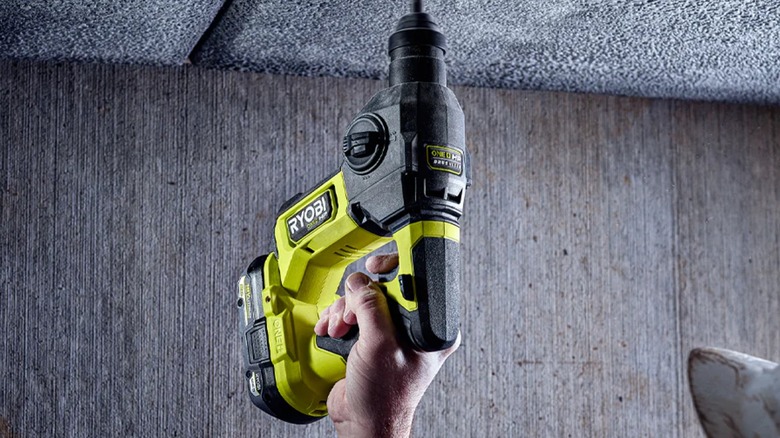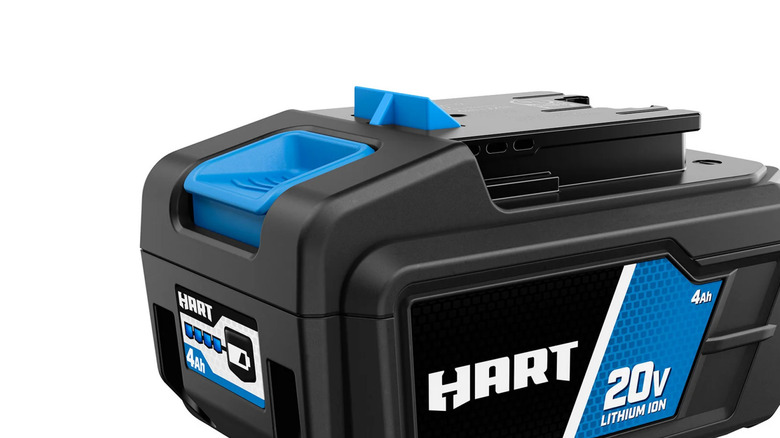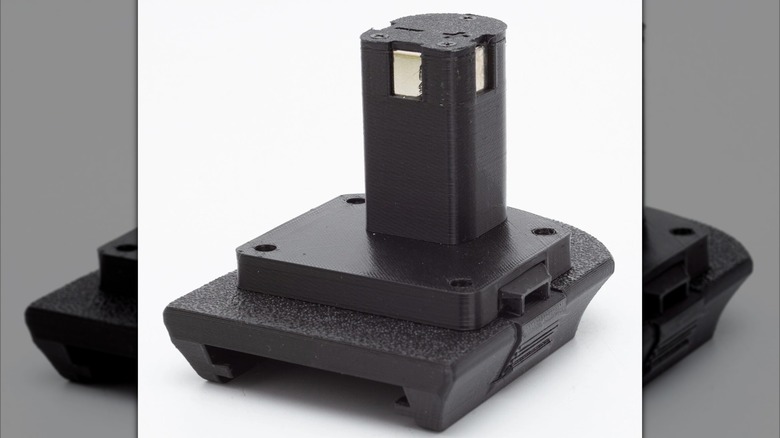Are Hart Batteries Compatible With Ryobi Tools?
We may receive a commission on purchases made from links.
Back in the days when disposable batteries were your only source of portable power, you had to accept whatever brand you could find at the store. Nowadays, at least with cordless power tools like those from Ryobi, we have the opposite problem: Battery packs are rechargeable, but you can only use the specific packs manufactured by the tool's manufacturer. If you have a sudden need for a Ryobi battery but there isn't a Home Depot nearby to buy one, what are you supposed to do?
Despite the specificity, you might still try bending the rules. At first glance, a Hart tool battery may seem a sufficient substitute considering that Hart and Ryobi power tools are made in the same factory. As Hart power tools are readily available at Walmart, it makes for a convenient solution. Sadly, this is a problem that a Walmart visit can't remedy. While Hart batteries may be conceptually similar to Ryobi's packs, they can't fit on to Ryobi tools or deliver any power. If you're truly determined to use a Hart battery on a Ryobi tool, it is technically possible to do so through the use of a third-party battery adapter. However, using unsanctioned accessories such as these may end up causing more problems than they're worth.
Hart batteries will not fit on Ryobi tools
Every hardware brand uses its own proprietary technologies when manufacturing its batteries and the tools that receive them. Many of these batteries have slight similarities, such as the comb-shaped panels on top and the rails used for securely connecting to a tool's receiver. Ryobi, however, is a bit of an outlier in that department, with a battery pack format so different from anything else on the market that there's genuinely no way any other brand could copy it, Hart included.
Let's compare batteries from both sides, specifically a Hart 20V 4Ah battery and a Ryobi 18V ONE+ 4Ah battery. The Hart battery's format is closer to the norm, with a flat top, recessed panel, and several divots that conceal the power transfer terminals. This is all connected to a tool via straight-line connector rails. The Ryobi battery, meanwhile, doesn't have a flat top at all, instead opting for a distinctive stalk that juts upward. That stalk is covered in terminals, which connect directly into a cylindrical receiver nook on a Ryobi tool. This is locked into place by fasteners located on the stalk's base.
Hart and Ryobi battery designs are simply too different to have any kind of crossover. Since Ryobi tools are built to receive batteries directly instead of having them slide on, a Hart battery's connector rails would have nothing to latch onto. Even if you could attach a Hart battery to a Ryobi tool somehow, the lack of upward terminals means there's no way for the battery to deliver power.
Unofficial adapters are available, but are not recommended
With these batteries as drastically different as they are, there is no way for a Hart battery to natively attach to a Ryobi tool. However, as with other industries with numerous exclusive brands, there are user-generated solutions to these kinds of problems. In this instance, the alleged solution would be to use an unofficial battery adapter. This is an accessory manufactured by a third-party specifically designed to facilitate a connection between two disparate tool brands' products. These adapters are all over major commerce platforms like Amazon and eBay.
The reason we call this an "alleged" solution is because using any kind of unofficial accessory with your power tools, and especially one related to power management, could be a potential recipe for disaster. All power tool batteries, Hart's included, contain an internal circuit board for directly interfacing with a connected tool and optimizing the flow of power for safe usage. Connecting a Hart battery to a Ryobi tool via an adapter circumvents that circuit board and forces energy to flow in an unoptimized manner.
With power flowing unfettered, you could either end up with underpowered, underperforming Ryobi tools, or worse, a dangerous overload of energy that results in the motor completely burning out. Additionally, Ryobi won't replace your batteries or tools should they suffer permanent damage from using an adapter, as using an unofficial accessory is a violation of both warranties.


